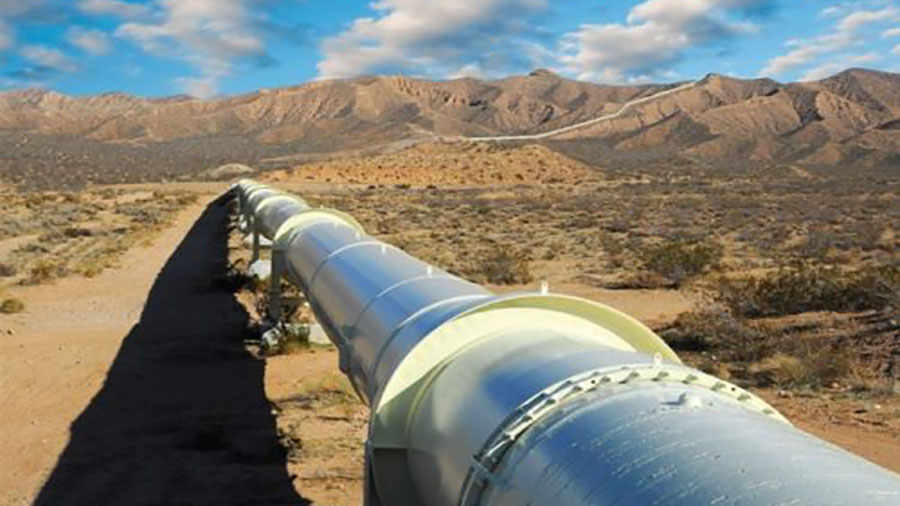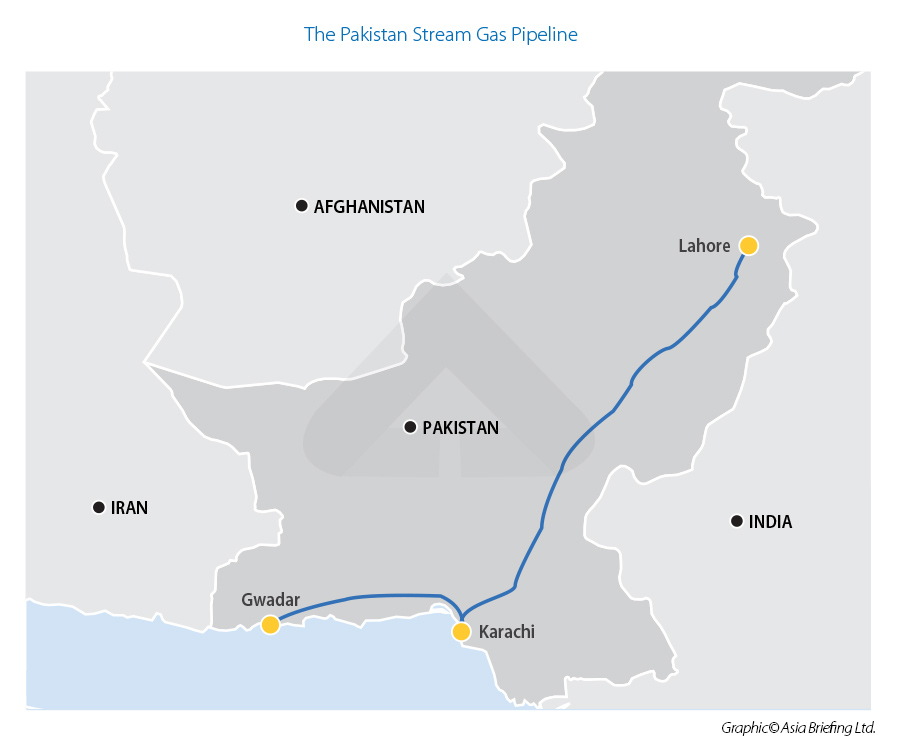Russia’s “Poyas I Ddoroga Iinitsiativa” Provides Energy Infrastructure To Support China’s CPEC

Russian Built Pakistan Stream Gas Pipeline To Finally Go Ahead
Construction works on the Pakistan Stream gas pipeline project are expected to begin after several rounds of consultations, Pakistani Ambassador to Russia Shafqat Ali Khan has said in an interview in Russian media.
“After many years of negotiations, Moscow and Islamabad have finally signed an agreement and since then there has been significant progress: we’ve held several rounds of technical consultations, including financial issues.” the ambassador said. “As soon as the final details are agreed, we expect the start of construction. I think it will have a significant impact for future investments in Pakistan. We are very optimistic.”

In May this year, the two countries signed a deal on building a major gas pipeline linking the Pakistani southern ports of Karachi and Gwadar, to power plants and industrial hubs in Pakistan’s northern region of the Punjab. Pakistan has oil and gas fields around its southern coast, while Gwadar Port can also be connected to incoming pipelines from Iran. These supplies will then be piped to northern Pakistan and the industrial belt where the energy is most needed.
Spanning over 683 miles (1,100 kilometers), the pipeline, dubbed ‘Pakistan Stream,’ is expected to have a discharge capacity of up to 12.4 billion cubic meters of natural gas per year.
Under the terms of the agreement, Pakistan would reportedly hold a 74% stake in the pipeline operator while Russia would own the remaining 26%. The initial deal to build the pipeline was clinched back in 2015.
The project is expected to become the largest infrastructure deal between the two nations since the early 1970s, when the Soviet Union built the Pakistan Steel Mills industrial complex, at Port Qasim near Karachi.
Pakistan is going through a period of huge industrialization as a result of China stepping in to provide massive amounts of funding through the China-Pakistan Economic Corridor (CPEC). Russia though has huge expertise in building oil and gas pipelines to an extent that China does not: Russia has some of the world’s largest energy fields and is a net exporter; China is energy poor and a net importer.
With the West seemingly exiting Central Asia in the wake of the Afghanistan debacle, both China and Russia are now flexing their muscles in providing much-needed energy infrastructure and supplies. Unlike the West however, their plans provide for a better distribution and development of regional economies: the United States in particular being more regionally exploitative with less left in the ground for local consumption.
The Punjab region of Pakistan is its industrial heartland with Lahore as its hub. The city is rapidly developing; Pakistan’s first metro system recently opened in the city, built with CPEC funding.
This will become a hub for competitive manufacturing as China seeks to relocate labor-intensive processes out of the country and to its regional neighbors, a strategy that will give Beijing room to move the China economy into a new tech, next generation economy while sharing industrial processing revenues along the Belt and Road Initiative. Russia has its own version of this, which we can call the “Poyas I Ddoroga Iinitsiativa” and which concentrates on energy supplies and infrastructure. Russian energy businesses are also active in building pipelines in nearby Iran and Turkmenistan, key to redeveloping Central Asia and re-energizing Afghanistan.
Lahore is connected by road to the Afghanistan capital Kabul via Islamabad, just 800km west. It is feasible that if the Taliban govern Afghanistan correctly, energy supply pipelines could be further extended to the country – another Central Asian nation in possession of great mineral wealth but with very little energy capacity.
Related Reading
About Us
Silk Road Briefing is written by Dezan Shira & Associates. The firm has 28 offices throughout Asia, and assists foreign investors into the region. For strategic advisory and business intelligence issues please contact the firm at silkroad@dezshira.com or visit www.dezshira.com





